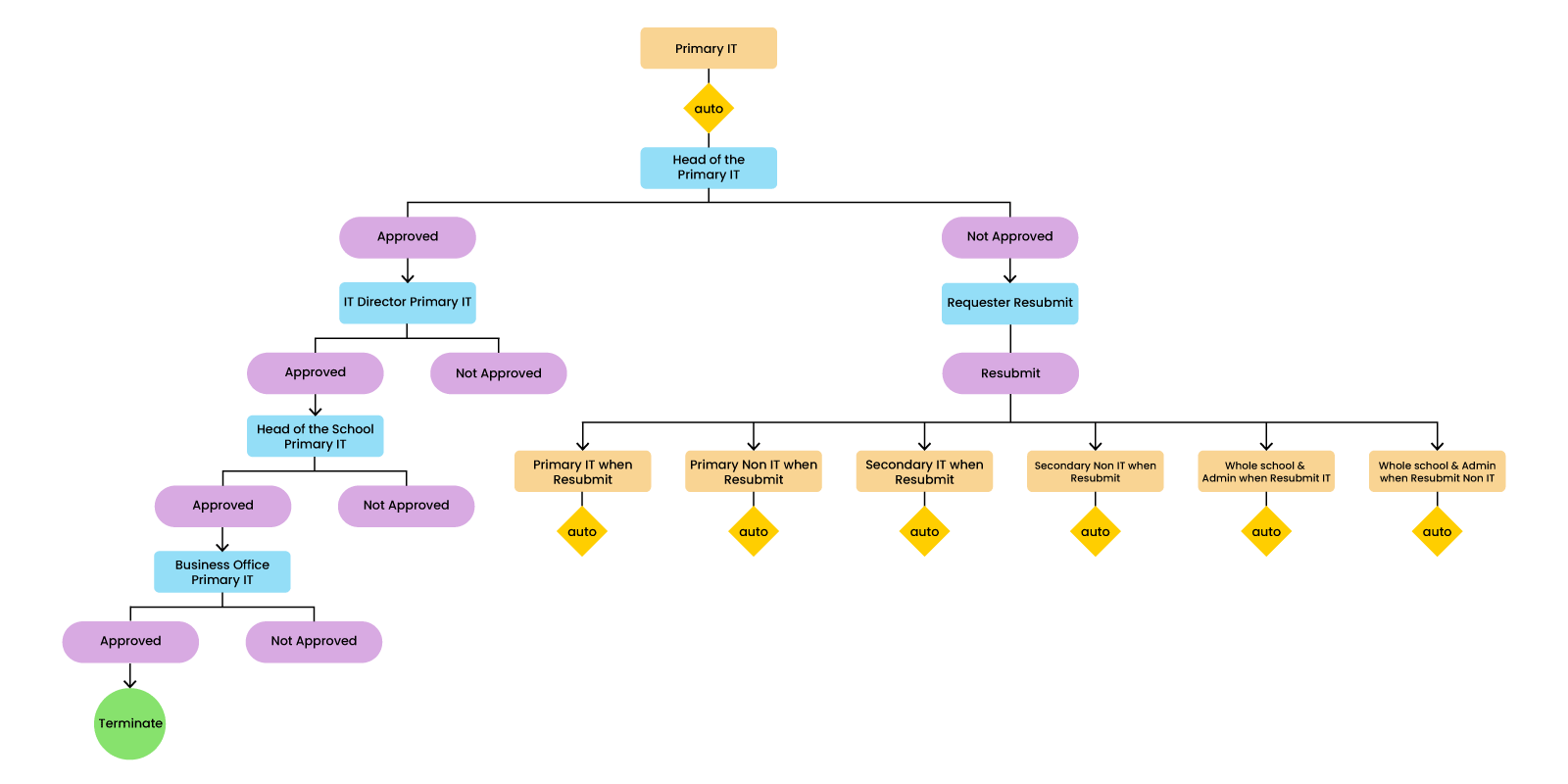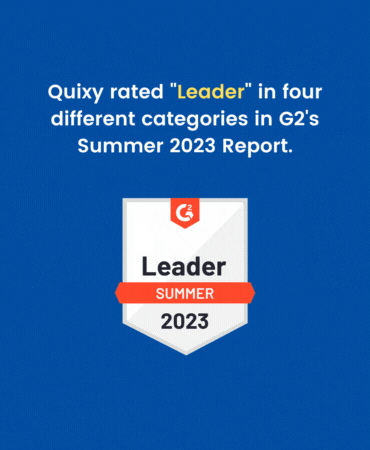Success Story
Chatsworth goes “All-digital” with its Purchase Requisition process

Info
- Customer: Chatsworth International School
- Domain: Education
Brief Summary
Chatsworth International School’s administration was trapped under manual processing of purchase requests raised from different departments. An automated purchase requisition system built using Quixy helped them to solve the chaos that came with locating, tracking and approving requests that were buried under the email trails.
Challenge
To ensure that the supply needs of every department in the school were met, the school administration was allocating budgets.
As the school administration was divided among sections as primary and secondary, the same was taken into account while processing purchase requests. The request raised by the primary section went to the head of the primary, then the campus principal and so forth. A similar type of hierarchy was followed based on the request for the secondary unit. Within these sections, based on the department e.g. IT, Admin etc., and the amount on the purchase request, different level of approvals were required.
The process involved email communication for raising these purchase requests and following up manually with emails for approvals and tracking progress. Locating the requests raised and honoring them was difficult as everything was buried inside the email trails. It led to slow processing of requests and hindered the regular working of the school.
The use of offline excel sheets for tracking purchase requests posed the risk to data security, in addition to calculation errors.
Need
The organization needed an automated requisition system, for the smooth flow of the purchase process. A system that could help automate and streamline the whole purchase requisition process from request generation to approval by the department’s head.
Solution
The company chose Quixy’s no-code platform to meet its requirements of deploying an automated Purchase Requisition System to process requests quickly. The procurement management system involves purchase requisition application, status, and report of approved purchases. The dashboard displays the list of the tasks, tasks status and due dates.
With the purchase management solution built with Quixy, the process starts with filling up the purchase requisition form, which includes various field types such as the purchases requested, the supplier details, quantity, and GST percentage for accurate information collection. After the request is submitted, the configured workflow and business rules ensure that the requests are routed systematically to concerned stakeholders. Once the allocated budgets are used up, the system prevents any new requests to be raised.
Using the system, all purchase data can be accessed in one place providing the necessary visibility and transparency while ensuring only authorized users can access their repective data to avoid any data security issues.
The purchase workflow is shown below.

Benefits Galore
With Quixy’s No-Code capabilities, Chatsworth was able to successfully transition to an automated purchase requisition management system from manual paper-based processes.
With the new automated system powered with rule-based decision automation, the requests are processed and approved faster leading to reduced turnaround time, fewer errors and more transparency.
Relevant Case Studies
Quixy rated as the top No-Code platform by users























